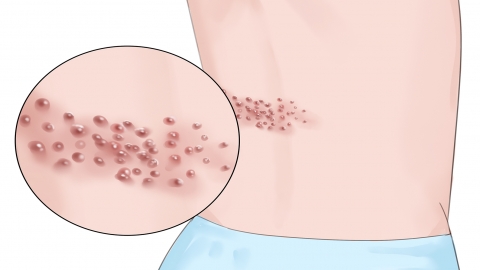Is the herpes virus contagious?
Under normal circumstances, herpesviruses are contagious. If discomfort symptoms occur, timely visit to a regular hospital for diagnosis and treatment is recommended. Detailed analysis is as follows:

Herpesviruses are contagious, and different types of viruses vary in transmission methods and contagiousness. Herpes simplex virus types 1 and 2 are highly contagious during the patient's illness period. When skin or mucous membranes develop blisters or ulcers, the virus actively replicates, and transmission can occur through direct contact with blister fluid or saliva, or by sharing personal items such as towels, tableware, lipstick, etc., with a higher risk during close contact. Varicella-zoster virus is highly contagious during the chickenpox phase and can spread via droplets or direct contact with blister fluid. Once it progresses to the shingles phase, contagion is possible only before the blisters have crusted over, primarily through direct contact with blister fluid, with reduced risk of droplet transmission. However, when the virus remains latent in the body without causing symptoms, it generally does not lead to transmission.
In daily life, it is important to avoid close contact with individuals currently experiencing a herpesvirus outbreak and not to share personal items. If herpes symptoms appear, scratching the affected area should be avoided to prevent rupture of blisters and subsequent viral spread. Prompt medical attention is also necessary. Individuals with weakened immune systems should pay particular attention to protective measures to reduce the risk of infection.









